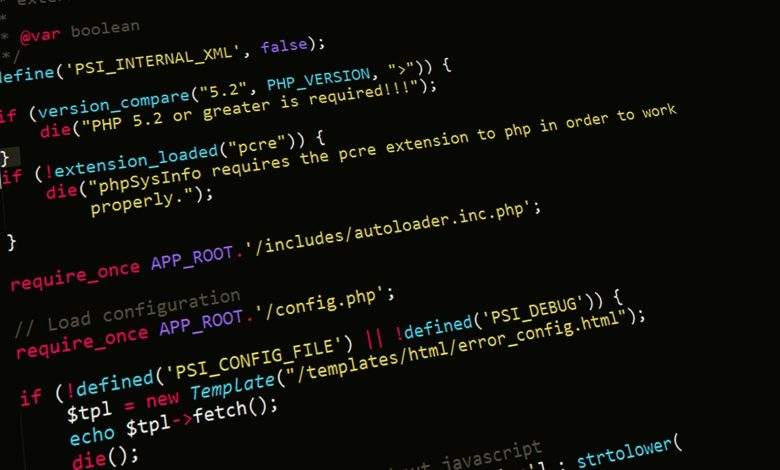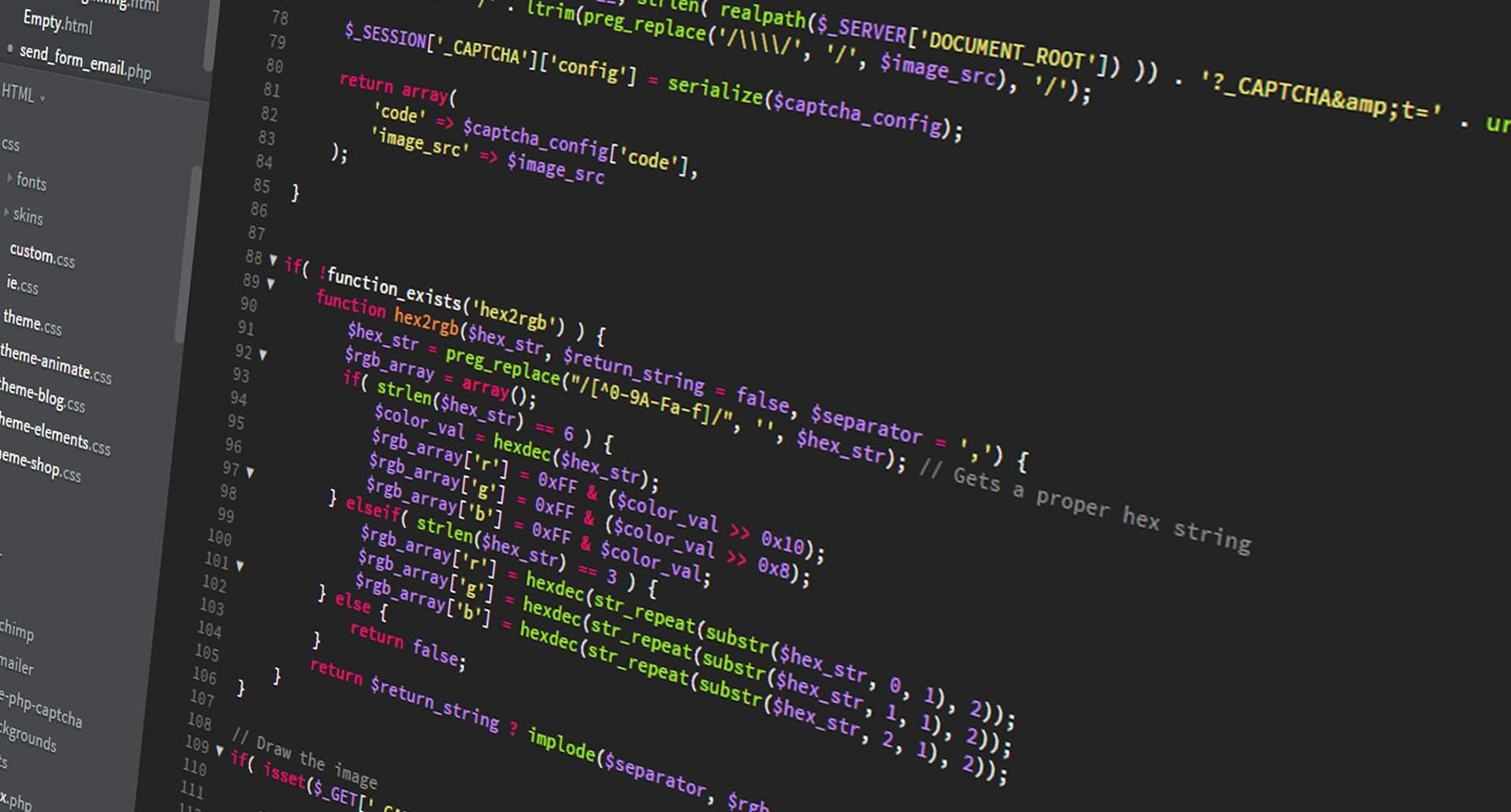
The Future of Code Development: Will Generative AI Replace APIs and SaaS Platforms?
In an ever-evolving technological landscape, the world of code development stands at a crossroads. As artificial intelligence continues to advance at an unprecedented pace, questions arise about its potential to transform the way we write and deploy software. The advent of generative AI has sparked a debate among developers, challenging long-established norms of relying on APIs and SaaS platforms for code generation. Will these intelligent algorithms eventually render traditional methods obsolete? In this article, we delve into the future possibilities of code development and explore whether generative AI is poised to take center stage in revolutionizing software engineering as we know it.
The Rise of AI in Code Development
In recent years, artificial intelligence (AI) has emerged as a powerful tool in various industries, and code development is no exception. The rise of AI in code development has the potential to revolutionize the way software is created and maintained. With machine learning algorithms and deep learning techniques, AI can assist developers in writing more efficient and error-free code.
One key area where AI is making its mark is in automating repetitive coding tasks. Developers often spend a considerable amount of time on mundane tasks such as debugging, troubleshooting, and refactoring code. However, with AI-powered tools like auto-complete suggestions and predictive coding capabilities, developers can now focus more on higher-level problem-solving rather than getting bogged down by menial coding chores.
Moreover, AI’s ability to analyze vast amounts of data makes it an invaluable asset for code development. By analyzing patterns within existing codebases or leveraging open-source repositories, AI can recognize common programming patterns and provide intelligent suggestions for optimizations or better alternatives. This not only saves time but also helps improve the quality of code produced.
The incorporation of AI into the field of code development does not mean that traditional APIs and SaaS platforms will become obsolete. In fact, these tools can complement each other to create a more efficient workflow for developers. From using pre-trained models via APIs to integrating AI-powered analysis into existing workflows through SaaS platforms – it’s clear that there is room for both traditional tools and innovative technologies like generative AI.

Understanding Generative AI: Revolutionizing Code Creation
Generative AI, a subset of artificial intelligence (AI), is revolutionizing the traditional process of code creation. Rather than relying solely on APIs and SaaS platforms, developers now have the power to leverage generative AI technology to automatically generate code. This new approach holds tremendous potential for efficiency, productivity, and creativity in the field of code development.
One key advantage of generative AI is its ability to understand context and generate code that aligns with specific requirements. Unlike APIs and SaaS platforms that offer predefined functionalities, generative AI can adapt to individual project needs and deliver tailor-made solutions. This level of customization saves developers precious time by automating repetitive tasks while simultaneously empowering them to explore more innovative solutions. By leveraging generative AI, developers can access vast resources of pre-existing knowledge to accelerate their coding processes without limiting their creativity. The result is faster development cycles and increased opportunities for experimentation within coding projects.
Another benefit offered by generative AI is its potential for collaboration among diverse teams. Traditional code development often requires extensive documentation and communication between team members to ensure everyone is on the same page regarding implementation details. With generative AI tools like OpenAI’s Code Copilot, multiple developers can implement complex codes with shared understanding efficiently. By reviewing existing repositories, generative models learn from experienced programmers’ expertise gathered throughout the open-source community—facilitating seamless teamwork even across geographical boundaries.
The Limitations of APIs and SaaS Platforms
APIs and SaaS platforms have revolutionized software development, enabling developers to leverage pre-built functionalities and rapidly create powerful applications. However, these tools have their limitations. One of the major drawbacks is that APIs often lack customization options, forcing developers to work within the constraints set by the provider. This can limit creativity and hinder innovation as developers are reliant on what is available from the API.
Moreover, APIs also introduce a level of dependency on third-party services. If an API provider decides to change or discontinue their service, it can lead to compatibility issues or even break existing applications. This adds a layer of uncertainty and risk for developers who rely heavily on external APIs.
Additionally, while SaaS platforms offer convenience by handling infrastructure and maintenance tasks, they may not always meet specialized requirements or unique business needs. These platforms are designed with general use cases in mind but fail to address specific use cases that require custom solutions.
As technology evolves at a rapid pace, new approaches like generative AI are emerging as alternatives to traditional APIs and SaaS platforms. These advancements hold the promise of automating portions of code development and generating tailored solutions based on individual needs. While there will always be a place for APIs and SaaS platforms in software development, it’s essential for developers to recognize their limitations and explore innovative alternatives that can empower them with more flexibility and control over their code creation process.

The Potential of Generative AI in Code Development
Generative AI has the potential to revolutionize code development by automating and augmenting the process of writing code. Traditionally, developers have relied on APIs and SaaS platforms to streamline their work, but generative AI could offer a more efficient and dynamic alternative. With generative AI, developers can input high-level instructions or requirements, allowing the algorithm to generate code that meets those specifications.
One key advantage of generative AI in code development is its ability to handle complex tasks and generate novel solutions. Unlike traditional coding methods that often require manual labor and extensive time investment, generative AI can quickly produce numerous lines of code based on specific criteria. This not only saves valuable developer time but also allows for the exploration of different possibilities and variations within the same project.
However, it is important to note that while generative AI has ample potential in revolutionizing certain aspects of code development, it is unlikely to completely replace APIs and SaaS platforms altogether. Rather than replacing these tools outright, generative AI will likely function as a complementary technology that assists developers in streamlining their work processes. By seamlessly integrating with existing coding frameworks and tools, generative AI brings forth new avenues for innovation without discarding established resources entirely.
Ethical Considerations and Challenges Ahead
Ethical considerations and challenges are paramount when contemplating the future of code development. As generative AI continues to advance, questions arise about its potential impact on privacy, security, and accountability. How can we ensure that AI-generated code is reliable and free from bias? Moreover, what safeguards can be put in place to prevent unauthorized access or manipulation of these systems?
One of the major challenges with generative AI in code development lies in maintaining transparency and clarity. Traditional software development relies on human programmers who understand every line of code they write. However, with generative AI, it becomes more difficult to interpret the logic behind automated decisions or actions taken by the system. This opacity raises concerns about debugging and troubleshooting as well as making ethical judgments regarding responsibility for any undesirable outcomes.
Furthermore, we must consider ethical implications related to intellectual property rights and fair competition. If generative AI simplifies code generation processes significantly, it may lead to a situation where entire software programs or algorithms are autonomously produced without direct human involvement. This poses crucial questions: Who owns the rights to such creations? How will this affect the job market for traditional programmers? Will it foster monopolistic practices?
Addressing these ethical considerations and ensuring appropriate solutions can be challenging but vital for shaping a responsible future for code development powered by generative AI technologies. It necessitates interdisciplinary collaboration between experts in computer science ethics, law, policy-making bodies, businesses utilizing these technologies ethically, and active engagement from communities impacted by such advancements.

Conclusion: Embracing the Future of Code Development
In conclusion, embracing the future of code development means recognizing the immense potential of generative AI and its ability to revolutionize programming as we know it. While APIs and SaaS platforms have become integral parts of modern software development, they may soon be overshadowed by the power and efficiency offered by AI-generated code.
One key advantage of generative AI in coding is its ability to automate repetitive tasks, enabling developers to focus on higher-level problem-solving. By analyzing vast amounts of data and patterns, AI can generate clean and efficient code with minimal human intervention. This not only saves time but also reduces the risk of errors or bugs.
Furthermore, embracing AI-driven code development brings about new possibilities for innovation. Developers can experiment with novel techniques that were previously unexplored due to their complexity or resource-intensive nature. Generative algorithms can push the boundaries of traditional programming paradigms by generating code that adapts dynamically based on user input or environmental factors.
By embracing this future-forward approach to coding, developers stand to gain a significant competitive advantage in an increasingly digital world. The days of relying solely on APIs and SaaS platforms may soon be behind us as generative AI takes center stage in shaping the future landscape of software development. It’s time to embrace this exciting transformation and unlock new realms of creativity in our coding practice.



